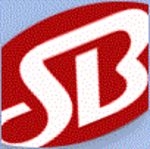Description

Churchhand

ChurchCRM
Comprehensive Overview: Churchhand vs ChurchCRM
Certainly! Let's delve into Churchhand and ChurchCRM, two software solutions designed for church management, although it should be noted that these platforms may evolve, and newer details might be available beyond my last update.
a) Primary Functions and Target Markets
Churchhand
- Primary Functions: Churchhand is designed to help churches manage various administrative tasks efficiently. Its features typically include member management, communication tools, event scheduling, donation tracking, and reporting. Some versions might offer volunteer management and child check-in features to enhance organizational oversight.
- Target Markets: Churchhand primarily targets small to medium-sized churches looking for affordable and user-friendly management solutions. It aims at congregations that need to streamline administrative tasks without the need for a complex and large-scale system.
ChurchCRM
- Primary Functions: ChurchCRM is an open-source church management software that covers member management, contributions tracking, event management, Sunday school administration, and email & text communications. Being open-source, it often benefits from community-driven updates and modifications.
- Target Markets: ChurchCRM caters to churches of varying sizes but is particularly appealing to tech-savvy congregations or those with IT support that can customize and manage the software themselves. Because it’s open-source, it's especially attractive to budgets-conscious organizations that can leverage internal resources for deployment and maintenance.
b) Market Share and User Base
-
Churchhand: Due to its proprietary nature, exact market share data is not typically available in the public domain. However, it generally appeals to smaller congregations that prefer a more structured, out-of-the-box solution with dedicated support.
-
ChurchCRM: As an open-source solution, ChurchCRM's market share may be harder to quantify in traditional terms. Nevertheless, it has a growing user base, especially among those preferring open-source solutions and organizations that appreciate the flexibility and community-driven improvements synonymous with open-source projects.
Overall, while neither might dominate the church management software market compared to larger brands, each holds its niche among specific user bases.
c) Key Differentiating Factors
-
Cost and Licensing:
- Churchhand: Likely operates on a subscription or one-time fee model depending on the service agreement, offering paid support and updates.
- ChurchCRM: Completely free with no licensing fees, offering unlimited access to its features. Costs might arise from hosting or from hiring external assistance for customization.
-
Customizability and Flexibility:
- Churchhand: Offers predefined features; customization options might be limited compared to open-source counterparts. It's ideal for users who prefer simplicity and minimal setup.
- ChurchCRM: Highly customizable due to its open-source nature, allowing churches to tailor the software as per their specific needs, provided they have or can outsource the technical expertise.
-
Community and Support:
- Churchhand: Users typically rely on vendor-backed customer support, which can be a benefit for less tech-savvy users needing ongoing assistance.
- ChurchCRM: Benefits from a robust community for peer support, though official support might be minimal. This can be advantageous for finding diverse solutions but challenging for users lacking technical skills.
-
Deployment:
- Churchhand: May offer cloud-based or on-premise deployment, depending on the vendor’s options.
- ChurchCRM: Generally self-hosted, requiring churches to manage their own servers or opt for third-party hosting solutions.
In summary, choosing between Churchhand and ChurchCRM largely depends on a church's size, budget, technical expertise, and specific needs for customization and support. While they serve similar core purposes, the differences in cost structure, customization capabilities, and support models can significantly influence a church's decision to opt for one over the other.
Contact Info

Year founded :
Not Available
+1 800-318-6627
Not Available
United States
Not Available

Year founded :
2012
Not Available
Not Available
Australia
http://www.linkedin.com/company/churchcrm
Feature Similarity Breakdown: Churchhand, ChurchCRM
To provide a detailed feature similarity breakdown for Churchhand and ChurchCRM, we should first look at the core functionalities typically offered by church management software. These tools are designed to streamline administrative tasks for churches, enhance community engagement, and foster better communication within the congregation.
a) Core Features in Common
-
Member Management:
- Both Churchhand and ChurchCRM offer robust member management capabilities, allowing users to track membership information, family connections, and member involvement.
-
Donation and Tithing Management:
- Each platform includes features for managing contributions. This covers tracking donations, generating giving statements, and handling pledges.
-
Communication Tools:
- Both systems provide communication tools such as email outreach and contact management to facilitate interaction with congregation members.
-
Event Management:
- Event scheduling and management functionalities are included, allowing churches to organize and keep track of events, services, and meetings.
-
Volunteer Management:
- Both offer tools for managing volunteers, organizing volunteer opportunities, and tracking participation.
-
Reporting and Analytics:
- They include reporting features to analyze data trends regarding membership, donations, events, etc.
b) User Interface Comparison
- Churchhand:
- Churchhand typically offers a modern and intuitive UI with a focus on straightforward navigation and ease of use. It often emphasizes accessibility and responsiveness, making it easy for users to manage tasks on the go through mobile devices.
- ChurchCRM:
- ChurchCRM provides a more traditional, open-source interface that might not be as polished visually but offers a high degree of customizability. Users comfortable with open-source ecosystems may appreciate the control they have over interface adjustments and feature extensions.
c) Unique Features
-
Churchhand:
- Mobile App Integration: Churchhand often provides integration with mobile apps, allowing users to access features directly from their smartphones more efficiently.
- Advanced User Permissions: It may offer more refined control over user roles, allowing precise administration over who can access or modify certain data.
- Integrated Text Messaging: Some versions of Churchhand provide built-in SMS functionality, which can be especially useful for quick communication with congregation members.
-
ChurchCRM:
- Open Source Flexibility: ChurchCRM is known for being open source, which allows greater flexibility in customization and extension creation by tech-savvy users or developers. This can be a significant advantage for those looking to tailor their software precisely to their church’s needs.
- Localization Options: ChurchCRM might offer a wide range of localization options to accommodate various languages and regional settings, which is beneficial for international or multilingual congregations.
When choosing between Churchhand and ChurchCRM, considerations often depend on the specific needs of a church, including the technical capability of their team and the particular features required to support their operations.
Features

Not Available

Not Available
Best Fit Use Cases: Churchhand, ChurchCRM
Churchhand and ChurchCRM are both specialized software designed to assist religious organizations in managing their activities, but they have different features and strengths that make them suitable for different contexts.
a) Best Fit Use Cases for Churchhand
Churchhand is typically a robust church management system designed to streamline the various administrative tasks associated with running a church or faith-based organization. It usually includes features like attendance tracking, event management, volunteer coordination, and possibly communication tools.
- Small to Medium-Sized Churches: Churches that require a comprehensive tool for everyday administrative tasks but do not have the budget or need for very advanced software.
- Organizations Focused on Member Engagement: Its tools may be well-suited for churches that emphasize strong community and congregation engagement, offering features like communication tools and event management that facilitate interaction.
- Churches with Basic Administrative Needs: For organizations that need an all-in-one solution for managing volunteer schedules, event planning, and limited reporting capabilities, Churchhand could be ideal.
b) Preferred Scenarios for ChurchCRM
ChurchCRM is typically an open-source software designed for churches needing specific functionalities, especially around data management and reporting.
- Data-Oriented Churches: For organizations that require detailed record-keeping and robust member databases, ChurchCRM offers extensive data management capabilities.
- Cost-Conscious Organizations: Being open-source, it can be more cost-effective for churches, especially small to medium-sized ones that have IT support, to implement without incurring high licensing fees.
- Customizable Requirements: Churches that need the flexibility to customize their management software extensively or integrate bespoke solutions can benefit from ChurchCRM’s adaptability.
- Tech-Savvy Teams: Churches that have a team comfortable with managing and customizing software, as ChurchCRM requires some technical expertise to deploy and modify.
d) Catering to Different Industry Verticals or Company Sizes
-
Industry Verticals: Both software solutions cater primarily to the religious and non-profit sectors. However, Churchhand might also appeal to non-profit organizations that function similar to churches in terms of needing tools for event management and volunteer coordination. ChurchCRM, due to its flexibility, could theoretically be adapted for other non-profits that require robust data management.
-
Company Sizes:
- Small to Medium Congregations: Both Churchhand and ChurchCRM are ideal for small to medium-sized churches, though Churchhand might be easier for smaller congregations without IT resources.
- Large Churches: Larger organizations with dedicated IT teams or customization needs might favor ChurchCRM for its flexibility and cost-effectiveness.
- Complex Organizations: Churches with complex administrative or data needs may find ChurchCRM’s capabilities more beneficial, provided they have the necessary technical support for implementation.
In summary, Churchhand is better suited for churches looking for straightforward, user-friendly management solutions, while ChurchCRM is more suitable for churches needing customization, robust data management, and cost savings through open-source software. Both cater to small and medium-sized organizations but can be adapted to larger institutions with the right resources.
Pricing

Pricing Not Available

Pricing Not Available
Metrics History
Metrics History
Comparing undefined across companies
Conclusion & Final Verdict: Churchhand vs ChurchCRM
To provide a comprehensive conclusion and final verdict for Churchhand and ChurchCRM, let's analyze them based on their value, advantages, disadvantages, and offer recommendations for potential users.
a) Best Overall Value
Overall Value:
Determining the best overall value between Churchhand and ChurchCRM depends significantly on the specific needs and priorities of a church or organization. If the primary focus is on a cost-effective solution with strong community support and basic features, ChurchCRM may be the best value. However, if superior customer support, ease of use, and advanced features that enhance user experience are priorities, Churchhand could be the better choice.
b) Pros and Cons
Churchhand
-
Pros:
- User-Friendly Interface: Churchhand is often praised for its intuitive design, making it accessible even for users with limited technical expertise.
- Comprehensive Features: Offers a broad spectrum of features, including membership management, event scheduling, donation tracking, and communication tools.
- Customer Support: Typically provides strong customer service, including onboarding and troubleshooting.
-
Cons:
- Cost: May be priced higher than ChurchCRM, which could be a consideration for smaller organizations with limited budgets.
- Customization Limitations: Depending on the version or package, there might be limited customization options compared to open-source alternatives.
ChurchCRM
- Pros:
- Cost-Effective: As an open-source solution, ChurchCRM is often available at no initial purchase cost, making it ideal for budget-conscious organizations.
- Community Support: Supported by a community that offers collaborative solutions, updates, and potential customizations.
- Flexibility: Allows for significant customization to meet specific needs due to its open-source nature.
- Cons:
- Technical Requirement: It may require a certain level of technical expertise to install, configure, and maintain.
- Limited Formal Support: While community support is valuable, the lack of official customer service could be a disadvantage for some users.
c) Recommendations for Decision-Making
Recommendations:
-
Assess Your Needs:
- If your organization requires robust, customizable software and has access to technical expertise, consider ChurchCRM for its flexibility and cost savings.
- If ease of use, professional support, and all-in-one service provision are priorities, Churchhand might serve your needs better.
-
Consider Budget Constraints:
- For smaller organizations or those with tight budgets, ChurchCRM offers a cost-effective entry point with room to scale and customize as needed.
-
Evaluate Long-Term Goals:
- Consider future growth and scalability needs. Churchhand might offer a more structured path for growing organizations looking to streamline operations with minimal technical oversight.
-
Trial Periods and Demos:
- Take advantage of free trials or demos offered by either platform to get a hands-on feel of their functionalities, which can provide valuable insights into their day-to-day usability and integration capabilities.
In conclusion, your choice between Churchhand and ChurchCRM should align with your organization's specific operational needs, budget, and technical expertise. Both platforms offer distinct advantages, and careful evaluation will ensure the selection of the most suitable solution for your ministry's unique context.
Add to compare
Add similar companies




